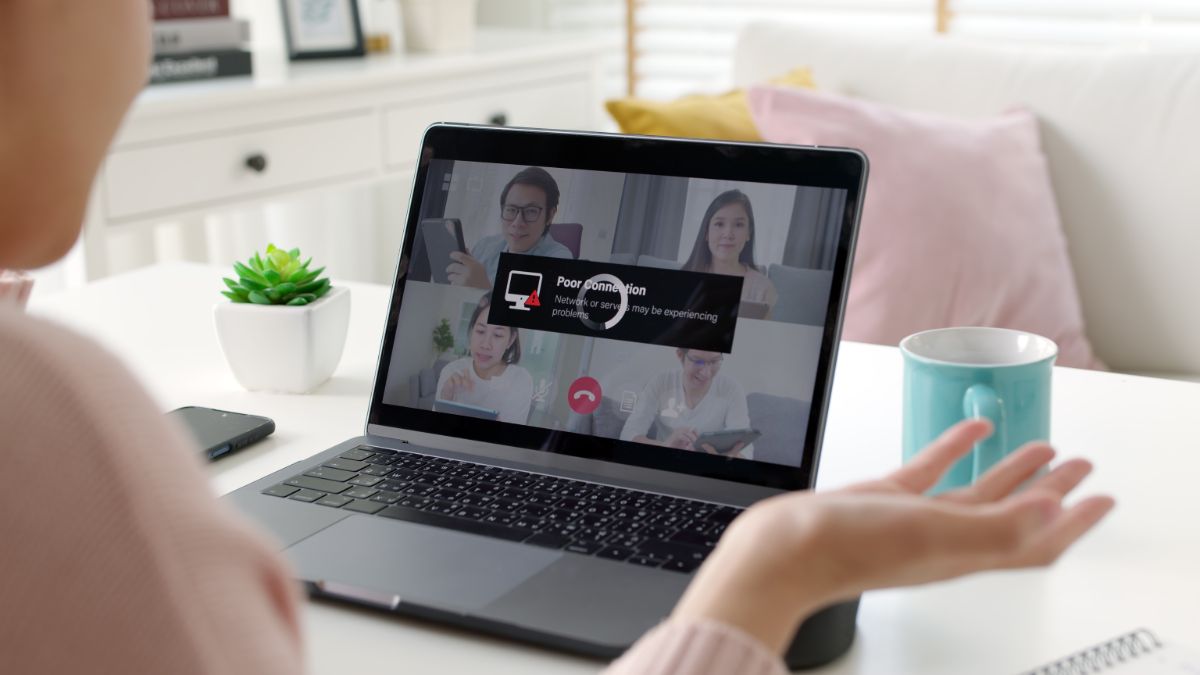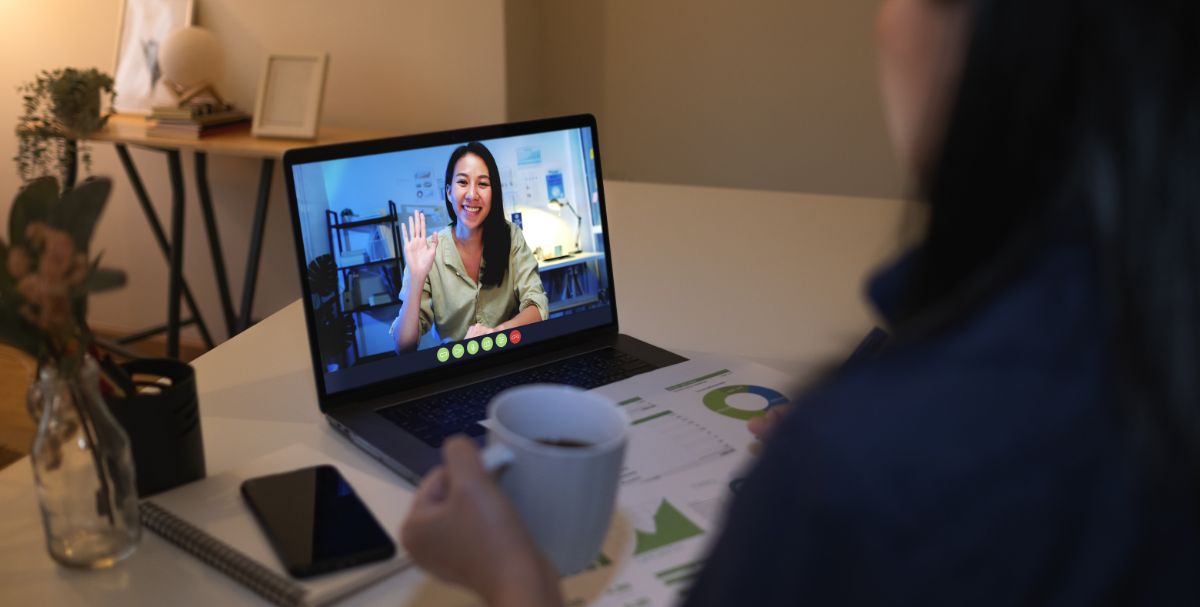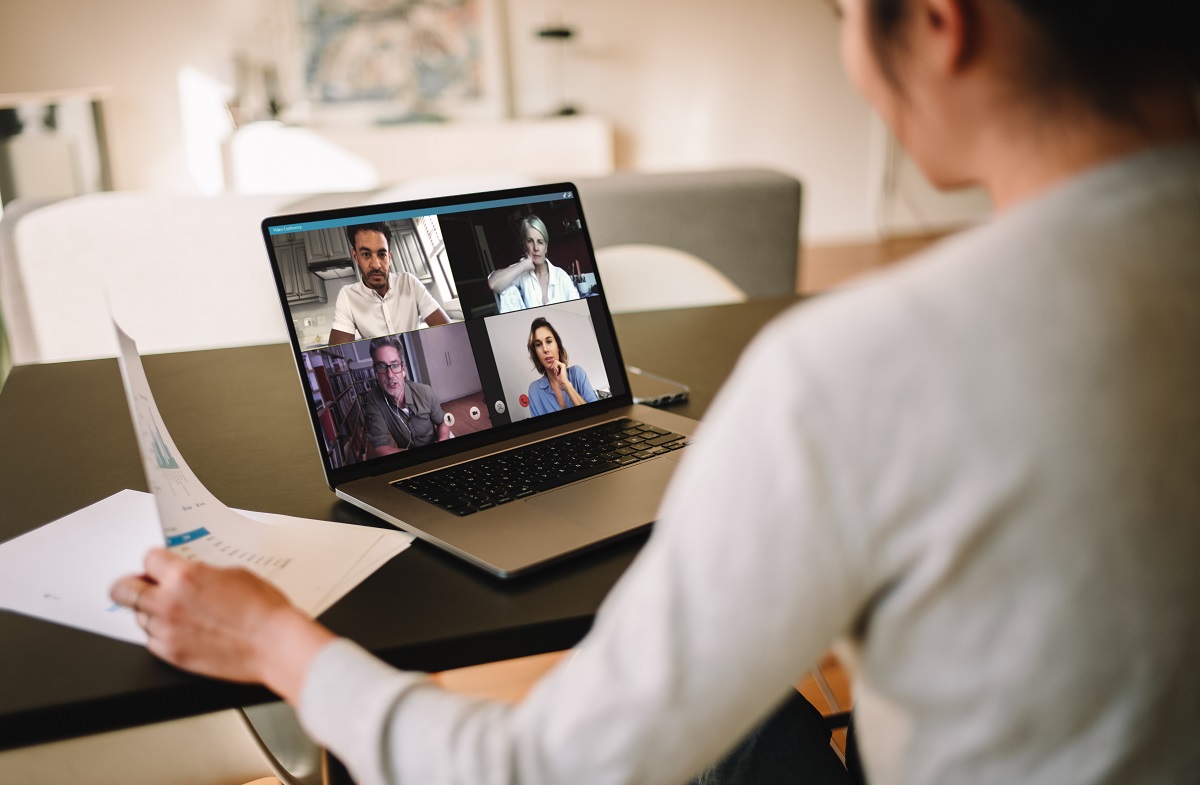What are common online interview mistakes?
- Not checking your camera, mic, and internet connection
- Staring into space — or at yourself
- Being surrounded by distractions
- Waiting till the last minute
- Talking over your interviewer
- Not paying attention to your clothes
- Having a messy or dark background
- Forgetting you’re on camera
- Moving too fast or erratic
- Not practicing beforehand
Ever had to take an online job interview as part of your job search? Even if you haven’t yet had the chance to experience it, you will soon — with all the post-COVID-19 changes in the world, online interviews are here to stay. Every day, more and more recruiters are opting for this tool to make the recruitment process more efficient. But as with anything new, many people experience difficulties and commit many blunders during this process. If you want to avoid that, then here are ten common mistakes in an online interview. Knowing these will help you present yourself much better on screen:
Not checking your camera, mic, and internet connection

Struggling with your laptop, mic, camera, and even WiFi during your interview can spoil the flow of conversation and make things awkward. There’s maybe nothing worse than being cut off in the middle of your answer because of a spotty connection. So, it’s essential to take time to check everything before hopping into your online interview.
Most conference apps, like Zoom and Google Meets, will have built-in testing capabilities for your mic and camera, so be sure to check there.
When you enter your interview, you should ask if the interviewer can see and hear you properly. Likewise, check if you can see or hear them properly before proceeding with the interview. This is the best way to ensure your meeting will go smoothly.
Staring into space — or at yourself
Looking bored and staring into space can make it seem like you’re unfocused on the interview. On the other hand, people also tend to look at themselves in online meetings. But, doing either one can give a bad impression and may even be distracting for your interviewer. Make sure to always maintain clear eye contact with the interviewer. You can either directly look into the camera or the interviewer on the screen. This creates the feeling of direct eye contact.
Being surrounded by distractions
When having an online interview, make sure you choose to have it in a space that is free from the day-to-day distractions of your home or office. That means staying away from ringing phones, other people talking, or other activities that go on in the area. You can also ask your roommates or your family to give you some quiet and privacy during your scheduled interview. This may prevent them from being noisy, or disturbing you during the online interview.
Waiting till the last minute

It can sometimes take a few minutes to get connected to an online conferencing app for your online interview. Avoid waiting till the last minute to click on the link and join the call, since it’s likely that you’ll connect to it past your agreed meeting time. You also don’t want to be rushing around at the last minute, which can negatively affect your focus and composure.
Talking over your interviewer
Even with great WiFi, there will be a few delays here and there while you’re conversing with your interviewers. Such connection delays make this mistake very easy to commit — even if you’re aware of it. The best way to avoid doing this is to wait for a few seconds after your interviewer stops speaking before giving your answer. Doing this will ensure you’re not interrupting them, and can also be used to think over your answer carefully before speaking.
Not paying attention to your clothes

Though your online interview can be done in the comfort of your home, be sure not to get too comfortable. After all, you wouldn’t wear just some shirt or your pajamas during an in-person interview. So, the same rule should apply to an online interview. Always make sure your interview clothes are appropriate and professional. Try to look your best!
Having a messy or dark background
Likewise, the area around you during your interview should also look appropriate and professional. This is important, as your interviewer can see what’s behind you. Make sure your background is neutral with minimal distractions. And, make sure you have adequate lighting. You can use either natural light from a window, but you can also supplement this with ceiling lights and lamps.
Forgetting you’re on camera

How you present yourself plays an important role in any kind of interview. But, the tendency of many is to forget that they’re on camera, and their posture and body language suffers. Remember not to relax so much that you begin slouching, touching your face, or other inappropriate behavior. Always keep a proper posture to convey your professionalism.
Moving too fast or erratic
Having a job interview can be a stressful experience — we get it. But, it’s important to remain relaxed and composed. Speaking or gesturing too quickly or erratically can make communication confusing between you and your interviewer. And, this can become even worse if your connection starts lagging. So remember to answer slowly and carefully, and make sure to allow for any potential time lags in the audio.
Not practicing beforehand

If you’re new to online interviews — or just interviews in general — then you should get in ample practice before the real thing. Set up an online meeting with a family member or friend, and try to simulate the experience of a real interview with them. This way you can practice answering reflections, and get some feedback on your performance. Doing this will help you feel more prepared in front of the webcam.
Key Takeaway
Improve your chances and make a great impression on a potential employer by knowing the common mistakes in an online interview. This article may just help you polish your online interview skills, increase your confidence, and make the process that much easier for you.
















